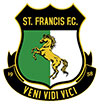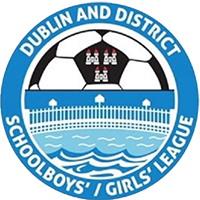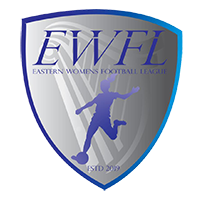Code of Conduct
St Francis FC - Code of Conduct Guideline
1. Aims and Objectives
The aim of St Francis F.C is to provide all players at our club with the maximum opportunities to develop their footballing ability to its full potential.
This will be achieved with the full co-operation of Managers/Coaches, Players and Parents in a safe and friendly environment.
2. Code of Conduct for Managers/Coaches
• Managers/Coaches will show respect for all players and officials and lead by example.
• Be fully prepared for coaching sessions and matches.
• Ensure a safe environment for learning and development.
• Managers/Coaches to keep themselves up to date with new ideas on coaching and development.
• Encourage each player in terms of self-discipline, good behaviour and punctuality.
• Be self-critical and not afraid to seek assistance.
• Be familiar with the St Francis Child Protection/Safeguarding/Code of Contact guidelines, liaising always with St Francis FC’s Child Welfare Officer (contact details on our website).
• Liaise with parents but do not share confidential information with them regarding players other than their own child.
• Ensure that all players are aware that all forms of bullying will not be tolerated.
• Be generous with your praise when it is deserved.
• Managers/Coaches must always display high standards of behaviour and appearance.
• Managers/Coaches must never approach players or parents asking them to sign for their team whilst the player is with another team within the club. This must be discussed in advance with the Director of Football.
3. Code of Conduct for Players
• Always show respect for team-mates, Managers/Coaches, opponents and officials.
• Always turn up on time for matches and training.
• Always play to win but accept defeat like proper Sportsmen/Sportswomen.
• Always have commitment to the club, your team, and always take pride in your performance.
• Ensure that your lifestyle helps, rather than hinders your progress.
• Play with control. Do not lose your temper.
• Pack your own gear bag and arrive for training and matches with the proper gear and boots – It is your bag, so carry it yourself and be responsible for it.
• Listen to advice given and ask questions if you don’t understand.
• Win with humility - lose with dignity.
• Help with equipment before and after matches and training.
• Let the manager know - as soon as possible - if you are injured or sick.
• Bullying will not be tolerated and if you feel you are being bullied feel safe to tell the manager.
• Enjoy playing and training with St Francis F.C.
• At the final whistle, applaud and thank your opponents and the referee for the match.
• Play for yourself and your team - your team's performance will benefit and so will your own.
• You must not bring the club into disrepute by your actions/conduct on or off the playing field.
4. Code of Conduct for Parents
• Always show respect for all players, opponents, Managers/Coaches and Officials.
• Set a good example by applauding good play on both sides.
• Have realistic expectations for your son/daughter and don’t put him/her under undue pressure.
• Ensure that your son/daughter arrives on time for training and matches and that safe arrangements are in place for getting them home afterwards.
• Leave coaching to the coaches.
• Respect the Managers/Coaches decisions.
• Assist when asked.
• Accept disappointment, praise good work and refrain from criticising.
• Support the club’s fund-raising activities where possible.
• If your son/daughter requires hospital treatment a parent must attend.
• Emphasise skill development and practice over winning and how they benefit your child (and other children/players).
• De-emphasise games and competition in the lower age groups.
• Pay your child’s registration fees on time.
• Do not place emphasis on winning at all costs.
• Foul and abusive language will not be tolerated under any circumstances.
5. Child Protection Policy
St. Francis believes that concern for the general well-being and welfare of all children and young persons under its care is of paramount importance in developing the young players of the future.
The club recognises the responsibilities and trust that is placed on it by all players and their families.
It will seek to respond to that responsibility by encouraging best practice in Child Protection matters and encourage everyone involved in the club to recognise this.
The protection of the child must be the number one priority of all its members.
All Managers/Coaches must know the club’s policy’s and procedures.
Be encouraged to listen to concerns of players and take their complaints seriously.
All current and potential Managers/Coaches shall consent to be screened as to their suitability to work with children as specified by the FAI Child Protection guidelines.
St. Francis F.C will emphasise to all members that they have a duty to report any concerns they have over the possible abuse of children. This duty also applies to concerns they might have about a colleague. These should be reported to the designated person.
The Club will provide guidance to anyone who makes a report of suspected abuse and they will be fully supported when voicing these concerns.
6. Definition of Child Abuse
Neglect: The neglect of a child or the failure to protect a child from any kind of danger including unnecessary exposure to cold and rain.
Physical Abuse: Actual or likely sexual exploitation of a child where a person involves a child in any activity that leads to their own or others sexual gratification. This might involve intercourse, touching, exposure of sexual organs, showing of pornographic material or talking in an erotic way.
Emotional Abuse: Failure to exhibit care and attention, particularly where a child is threatened, taunted or shouted at and consequently can lead to a loss of self-esteem and confidence. Similarly, undermining a child by ignoring effort or progress will have a negative effect.
7. Guidance to Promote Good Practice
The following guidelines are suggested to Managers/Coaches to reduce situations, which could lead to the abuse of children as well as attempting to protect those who are working with children and young people.
• Always try to work with children and young people in the open and public view.
• With very young children, where possible, try to encourage parents to take responsibility for their children in the changing rooms.
• It is possible that a Manager/Coach might have to help young children with undressing, changing and dressing. Such tasks should only be carried out after discussion and consent of the player and parents.
• Always ensure Managers/Coaches work in pairs when children need to be supervised in the changing rooms.
• Always try to develop a climate, which encourages development and enjoyment of the sport.
• Always take steps to challenge bullying and always listen to complaints from team members who feel that they are being bullied.
• Always try to avoid being alone in a car with a child/young person. Sometimes this will be unavoidable but try to make sure the child/young person sits in the back of the car.
• Always try to avoid taking a child/young person home with you, especially if they would be alone with a Manager/Coach.
• It is advisable that Managers/Coaches identify who will be collecting a child/young person following a match or training session.
• Managers/Coaches should take steps to know who will care for a child/young person if his parents are not at home when the child is returned home following a match or training session.
8. Anti-Bullying Policy
It is vital that everyone within the club understands that Bullying will not be tolerated and that the following conditions must be met.
In being confronted with a possible case of bullying all Managers/Coaches must be prepared to:
• Take the problem seriously.
• RReport the incident to the Child Welfare Officer
• Investigate the incident.
• Take appropriate action as set down in the FAI Guidelines on Child Safeguarding.
9. Child Protection Advice for Players
You are entitled as a player to be:
• Safe.
• Be treated with dignity, sensitivity and respect.
• Experience competition and the desire to win as a positive and healthy outcome of striving for best performance.
• Be happy, have fun and enjoy soccer.
• Comment and make suggestions in an appropriate and constructive manner.
• Be listened to.
For further information on any of the above please contact the child welfare office (contact details on our website) or alternatively you can go to the FAI document library at:
https://www.fai.ie/domestic/safeguarding/document











